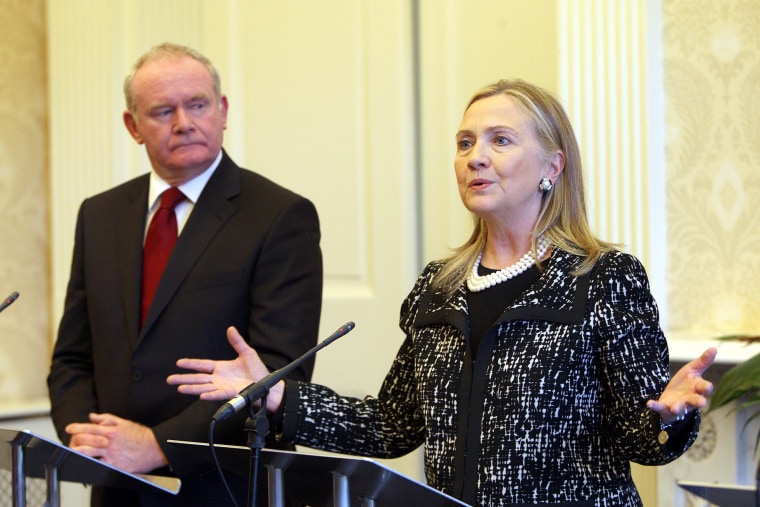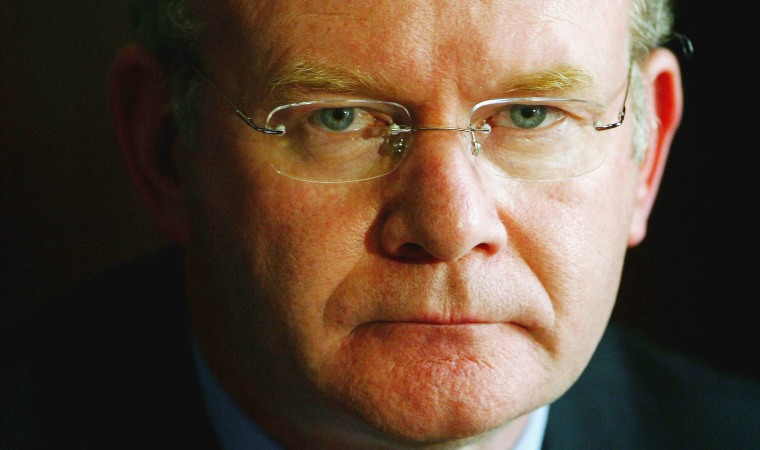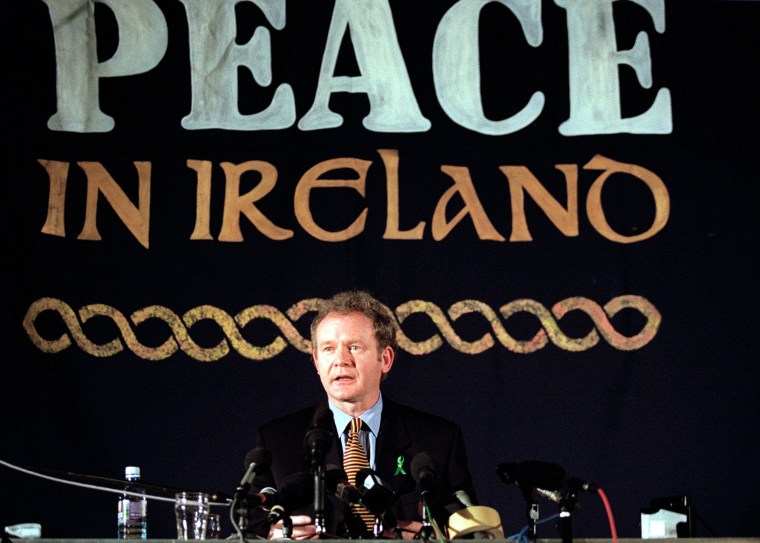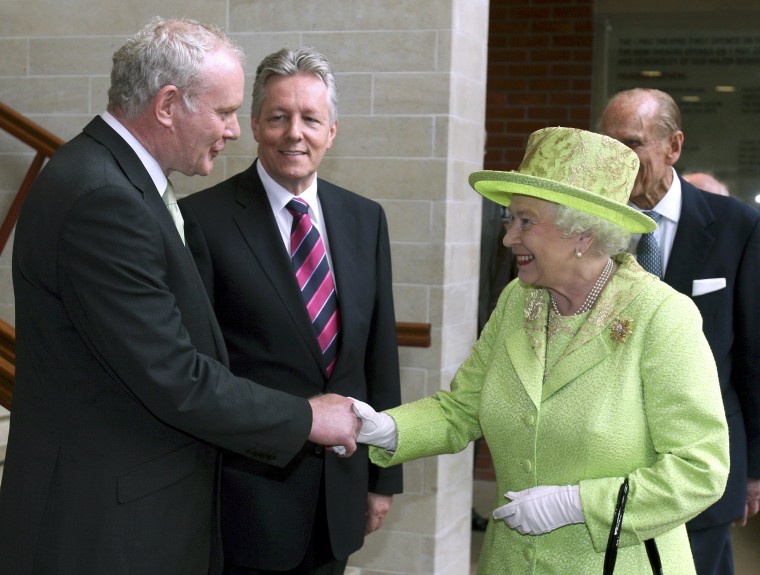DUBLIN — Martin McGuinness, the former Irish Republican Army commander and deputy first minister in Northern Ireland who was a key figure throughout five decades of conflict and peace, has died. He was 66.
His Sinn Fein party said his death followed a short illness.

McGuinness abandoned a butcher's apprenticeship in 1970 to join the Irish Republican Army in a bloody campaign to end British rule in Northern Ireland. He played a key role in both the start and the end of the province's 30-year sectarian conflict, in which some 3,600 people were killed.
McGuinness' transformation as peacemaker was all the more remarkable because, as a senior IRA commander during the years of gravest Catholic-Protestant violence, he insisted that Northern Ireland must be forced out of the United Kingdom against the wishes of Protestants.
Even after the Sinn Fein party — the IRA's legal, public face — started to run for elections in the 1980s, McGuinness insisted that "armed struggle" remained essential.
"We don't believe that winning elections and any amount of votes will bring freedom in Ireland," he told a BBC documentary team in 1986. "At the end of the day, it will be the cutting edge of the IRA that will bring freedom."
Related: Anguish Haunts Northern Ireland's Retired Terrorists
Yet within a few years of making that stubborn vow, McGuinness was exploring the opposite option in covert contacts with British intelligence that led eventually to a truce, inter-party talks and the installation of the IRA icon in the heart of Northern Ireland's government.
Irish Times columnist Fintan O'Toole argued in January 2017 that McGuinness had been "a mass killer — during his period of membership and leadership the IRA killed 1,781 people, including 644 civilians — whose personal amiability has been essential to the peace process. If he were not a ruthless and unrepentant exponent of violence, he would never have become such a key figure in bringing violence to an end."

McGuinness never hid the fact that he had been a commander of the IRA — classed as a terrorist organization by the British, Irish and U.S. governments.
He rose to become Derry's deputy IRA commander by age 21 as "Provo" bombs systematically wrecked the city center.
In 1972, Northern Ireland's bloodiest year, McGuinness joined Sinn Fein leader and close ally Gerry Adams in a six-man IRA delegation flown by the British government to London for secret face-to-face negotiations during a brief truce. Those talks got nowhere and McGuinness went back on the run until his arrest on New Year's Eve in the Republic of Ireland near a car loaded with 250 pounds of explosives and 4,750 rounds of ammunition.
During one of his two Dublin trials for IRA membership, McGuinness declared from the dock he was "a member of the Derry Brigade of the IRA and I'm very, very proud of it."

Historians and security analysts agree that McGuinness was promoted to the IRA's ruling army council following his November 1974 parole from prison and would have overseen many of the group's most spectacular and divisive attacks. These included bomb attacks on London tourist spots and the use of "human bombs" — civilian employees like cooks and cleaners at British security installations — who were forced to drive car bombs to their places of work and were detonated by remote control before they could raise the alarm.
His central role in the IRA command was underscored when Britain in 1990 opened secret dialogue with the underground group in hopes of securing a cease-fire. An MI6 agent codenamed "The Mountain Climber" met McGuinness several times as part of wider diplomatic efforts that delivered a 1994 IRA truce and, ultimately, multi-party negotiations on Northern Ireland's future and the U.S.-brokered Good Friday peace accord of 1998.
Northern Ireland's first power-sharing government, formed in 1999, was led by moderates and afforded only minor roles for Sinn Fein and the most uncompromising Protestant party, the Democratic Unionists. When Sinn Fein nominated McGuinness to be education minister, many Protestant lawmakers recoiled and insisted they would never accept what one called "an IRA godfather" overseeing their children's education.
McGuinness later met Queen Elizabeth II for a historic 2012 handshake in Belfast. All the while, McGuinness expressed newfound support for the police as they faced attacks from IRA splinter groups — a U-turn that exposed McGuinness and his relatives to death threats in their Derry home.
McGuinness resigned as Northern Ireland's deputy first minister in January, toppling power-sharing in the process.
British Prime Minister Theresa May paid tribute to McGuinness on Tuesday.
"While I can never condone the path he took in the earlier part of his life, Martin McGuinness ultimately played a defining role in leading the Republican movement away from violence," she said in a statement. "In doing so, he made an essential and historic contribution to the extraordinary journey of Northern Ireland from conflict to peace."
"His death leaves a gap that will be difficult to fill," Irish President Michael D. Higgins added. "May he rest in peace."
